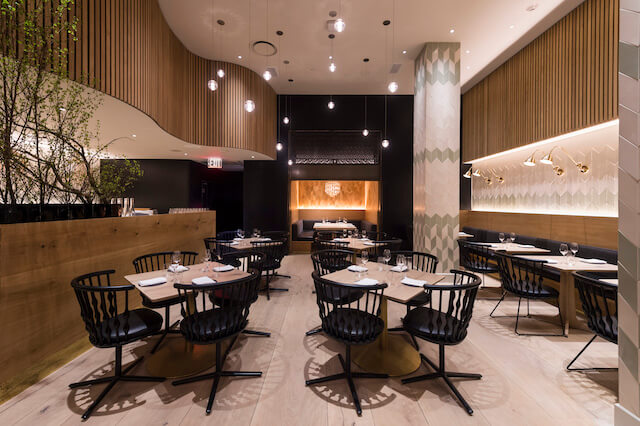For many Americans, dining out without tipping is considered gauche, if not downright disrespectful.
But Jens Baake, the chief operating officer of dining empireMeyerUSA, doesn’t considertipping a best practice — for customers or employees. “Tipping, for us, is an incentive for an individual to fight for him or herself,” says Baake.
MeyerUSA was launched by Danish chef and food entrepreneur Claus Meyer, whose recent NYC ventures include a massive Nordic Food Hall, the upscaleAgernin Grand Central Terminal and a cooking school in Brownsville,Brooklyn.Its workplace ethos is based on teamwork and collective responsiblity; that’s part of why the company has done away with tipping altogether. RELATED:Negotiating isn’t ruthless, it’s business Instead, MeyerUSA pays all employees a $15 wage — from servers to dishwashers — as part of what’s being called one of the most comprehensive benefits packages in the hospitality industry. Says Baake, “We made the conscious decision that our lowest-paid employee will make $15 an hour before we even knew what the recruiting environment was like, what the staffing environment was like, because when it comes to our values system, our employees need to feel good about where they work. “We want them to become our advocates, and what we are showing is we’re also advocating for them.”
RELATED:Why meditation makes you more productive than multitasking
The package also includes full health benefits, a 100 percent matching 401K, and paid twelve weeks maternity and paternity leave with the option to double time off (though that would be unpaid.) To boot, it affords community days — paid time off for employees to volunteer at a nonprofit of their choice. In an industry where benefits are slim to none, and in New York, a state where the minimum wage for tipped employees is $7.50 if they earn enough in tips (though the general minimum wage isslated to risefrom $9 to $10.50 by the end of 2016, this hike doesn’t apply to tipped workers) the package might sound revolutionary. But for Baake, who was born in Germany, it’s simply how business is done. He says that when only about half of employees have the opportunity to work for tips, it doesn’t benfit the organization as a whole. And as for those positions that do (sometimes) get tipped handsomely? “By eliminating tipping, it doesn’t mean that they’re [servers] making less money. It just means that the way we look at it is different. When I look at the numbers of what servers are learning, it’s still very impressive. I don’t think of [our] system as something that reduces the income potential of the individual server,” says Baake. RELATED: Danish bakery Meyer’s Bageri is popping up in Brooklyn Though numbers vary, the wage is higher than what most hospitality workers currently earn hourly. Bartenders in New York earn a median amount of $7.50 in tips per hour, according to theBureau of Labor Statistics. Servers in the New York City metropolitan area fare slightly better, with average total earnings of $14.08, according to to the BLS. But for Baake and MeyerUSA, paying a higher wage isn’t just about money. It’s inextricably linked to professional education and development, what Baake calls “a deep philosophy of training” that gives employees the chance to “do so much from scratch.” In theory, it’s part of the company’s commitment to “deliciousness” — which, in addition to the literal interpretation, is an approach to food that brings joy to guests, professional fulfilment to employees and sustainability to the community. In practice, a philosophy of “deliciousness” means giving a server with a passion for beer the chance to work with a local brewery, or a dishwasher who has an amazing recipe passed down from his grandmother the opportunity to bring it to the cook’s attention. As a growing number of restaurateurs eliminate tipping, such Danny Meyer (of Shake Shack, and the Whitney Museum’s more upscale Untitled restaurant) they’re changing the way we think about what fair compensation means for restaurant staff‚ and what dining out means to customers. Says Baake, “We feel that by providing delicious food, we can build a better world.”
Claus Meyer’s restaurant policies mean a better meal for everyone

provided


















